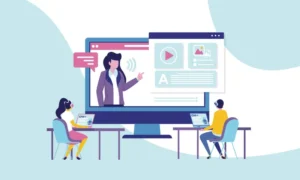Government Regulations and Policies Shaping the Landscape of Online Education

Online education, often referred to as e-learning, has experienced unprecedented growth in recent years, largely fueled by technological advancements and shifts in educational paradigms. As this innovative mode of learning becomes increasingly prevalent, governments around the world have been implementing various regulations and policies to ensure its quality, accessibility, and accountability. This article explores the impact of government regulations and policies on online education, addressing their significance, key areas of focus, and implications for students, institutions, and the education sector as a whole.
Contents
The Significance of Government Regulations
Government regulations and policies play a pivotal role in shaping the landscape of online education. They are designed to protect students, uphold academic standards, promote innovation, and ensure that online education providers meet certain criteria. These regulations have gained prominence due to the rapid growth of online education, which calls for the development of a robust regulatory framework.
Key Areas of Focus
- Accreditation and Quality Assurance: One of the primary concerns in online education is ensuring the quality of programs and institutions. Government bodies are responsible for accrediting online institutions and programs, verifying that they meet predefined standards of excellence. Accreditation assures students that their education meets recognized benchmarks.
- Accessibility and Inclusivity: Governments worldwide are committed to making education accessible to all. Online education allows for greater inclusivity as it can reach remote or marginalized populations. However, to ensure equitable access, governments must implement policies that address issues such as the digital divide, special needs education, and affordability.
- Financial Aid and Funding: In many countries, government support through financial aid programs is vital for students pursuing online education. These programs make education more affordable and encourage participation in online learning.
- Curriculum and Content Standards: Governments often set guidelines for curriculum standards in online education. These standards ensure that students receive a well-rounded education and that the curriculum is up to date and relevant.
- Data Privacy and Security: As online education relies on the exchange of digital information, data privacy and security are paramount. Governments establish regulations to protect students’ personal information and data security within online learning platforms.
- Licensing and Authorization: Online institutions must often obtain licenses or authorizations to operate legally. Governments are responsible for granting these licenses and regulating their validity.
Implications for Students
Government regulations in online education have several implications for students. On one hand, these regulations offer assurance that their educational investments will result in a recognized degree or certificate. Accreditation standards ensure that the quality of education is consistent across institutions. Financial aid and funding opportunities can make education more affordable, thereby increasing access for students who may not have otherwise pursued higher education. Additionally, data privacy regulations protect students from the misuse of their personal information.
However, there are also potential drawbacks, such as limitations on program choices due to accreditation requirements or geographic restrictions. The process of obtaining financial aid may be bureaucratic and time-consuming, leading to delays in funding. Moreover, students may need to adapt to varying regulations across different regions, depending on their location and chosen institution.
Implications for Institutions
Online education institutions are deeply affected by government regulations and policies. Accreditation standards are of paramount importance, as institutions must adhere to these standards to maintain their credibility and attract students. Compliance with data privacy regulations can be costly, especially for smaller institutions that may lack the resources to ensure robust cybersecurity measures.
While accreditation is essential, it can also be a lengthy and resource-intensive process for institutions. In some cases, regulations may stifle innovation by imposing rigid curricular standards that make it challenging to introduce new programs or teaching methods. The need to stay up to date with evolving regulations can also require additional administrative resources.
Implications for the Education Sector
Government regulations and policies in online education have broader implications for the education sector as a whole. These regulations help maintain the reputation and credibility of online learning, which benefits students and institutions alike. The emphasis on inclusivity in online education aligns with global educational goals of reaching underserved populations and reducing disparities.
However, excessive regulations can hinder the growth of the online education sector. Rigidity in curriculum standards may impede innovation and the adaptation of new teaching methodologies. Additionally, variations in regulations between regions can create challenges for international collaborations and partnerships in education.
Conclusion
Government regulations and policies have a profound impact on the evolving landscape of online education. Their significance cannot be overstated, as they safeguard the quality of education, promote accessibility, and ensure that the sector operates within defined standards. While these regulations bring advantages to students, institutions, and the education sector, they also introduce challenges that must be addressed to ensure the continued growth and development of online education. Striking a balance between regulation and innovation is crucial to harness the full potential of online education in the modern era.









